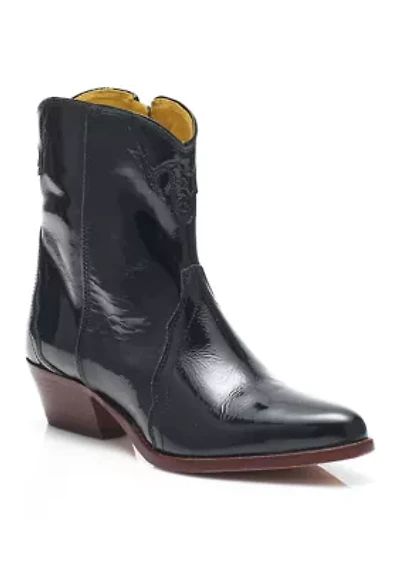Home
the Conservative Frontier: Texas and Origins of New Right
Barnes and Noble
Loading Inventory...
the Conservative Frontier: Texas and Origins of New Right
Current price: $34.95

Barnes and Noble
the Conservative Frontier: Texas and Origins of New Right
Current price: $34.95
Loading Inventory...
Size: Hardcover
*Product information may vary - to confirm product availability, pricing, shipping and return information please contact Barnes and Noble
How West Texas business and culture molded the rise of conservatism in the United States.
Much of what we understand as modern American political conservatism was born in West Texas, where today it predominates. How did the people of such a vast regionlarger than New England and encompassing big cities like Lubbock and Amarillo, as well as tiny towns from Anson to Dalhartdevelop such a uniform political culture? And why and how did it go national?
Jeff Roche finds answers in the history of what he calls cowboy conservatism. Political power players matter in this story, but so do football coaches, newspaper editors, and a breakfast cereal tycoon who founded a capitalist utopia.
The Conservative Frontier
follows these and other figures as they promoted an ideology grounded in the entrepreneurial and protolibertarian attitudes of nineteenthcentury Texas ranchers, including a fierce devotion to both individualism and smalltown notions of community responsibility. This political sensibility was in turn popularized by its association with the mythology and iconography of the cowboy as imagined in twentiethcentury mass media. By the 1970s and the rise of Ronald Reagan, Roche shows, it was clear that the cowboy conservatism of West Texas had set the stage for the emergence of the New Rightthe more professionalized and techsavvy operation that dominated national conservative politics for the next quarter century.
Much of what we understand as modern American political conservatism was born in West Texas, where today it predominates. How did the people of such a vast regionlarger than New England and encompassing big cities like Lubbock and Amarillo, as well as tiny towns from Anson to Dalhartdevelop such a uniform political culture? And why and how did it go national?
Jeff Roche finds answers in the history of what he calls cowboy conservatism. Political power players matter in this story, but so do football coaches, newspaper editors, and a breakfast cereal tycoon who founded a capitalist utopia.
The Conservative Frontier
follows these and other figures as they promoted an ideology grounded in the entrepreneurial and protolibertarian attitudes of nineteenthcentury Texas ranchers, including a fierce devotion to both individualism and smalltown notions of community responsibility. This political sensibility was in turn popularized by its association with the mythology and iconography of the cowboy as imagined in twentiethcentury mass media. By the 1970s and the rise of Ronald Reagan, Roche shows, it was clear that the cowboy conservatism of West Texas had set the stage for the emergence of the New Rightthe more professionalized and techsavvy operation that dominated national conservative politics for the next quarter century.
How West Texas business and culture molded the rise of conservatism in the United States.
Much of what we understand as modern American political conservatism was born in West Texas, where today it predominates. How did the people of such a vast regionlarger than New England and encompassing big cities like Lubbock and Amarillo, as well as tiny towns from Anson to Dalhartdevelop such a uniform political culture? And why and how did it go national?
Jeff Roche finds answers in the history of what he calls cowboy conservatism. Political power players matter in this story, but so do football coaches, newspaper editors, and a breakfast cereal tycoon who founded a capitalist utopia.
The Conservative Frontier
follows these and other figures as they promoted an ideology grounded in the entrepreneurial and protolibertarian attitudes of nineteenthcentury Texas ranchers, including a fierce devotion to both individualism and smalltown notions of community responsibility. This political sensibility was in turn popularized by its association with the mythology and iconography of the cowboy as imagined in twentiethcentury mass media. By the 1970s and the rise of Ronald Reagan, Roche shows, it was clear that the cowboy conservatism of West Texas had set the stage for the emergence of the New Rightthe more professionalized and techsavvy operation that dominated national conservative politics for the next quarter century.
Much of what we understand as modern American political conservatism was born in West Texas, where today it predominates. How did the people of such a vast regionlarger than New England and encompassing big cities like Lubbock and Amarillo, as well as tiny towns from Anson to Dalhartdevelop such a uniform political culture? And why and how did it go national?
Jeff Roche finds answers in the history of what he calls cowboy conservatism. Political power players matter in this story, but so do football coaches, newspaper editors, and a breakfast cereal tycoon who founded a capitalist utopia.
The Conservative Frontier
follows these and other figures as they promoted an ideology grounded in the entrepreneurial and protolibertarian attitudes of nineteenthcentury Texas ranchers, including a fierce devotion to both individualism and smalltown notions of community responsibility. This political sensibility was in turn popularized by its association with the mythology and iconography of the cowboy as imagined in twentiethcentury mass media. By the 1970s and the rise of Ronald Reagan, Roche shows, it was clear that the cowboy conservatism of West Texas had set the stage for the emergence of the New Rightthe more professionalized and techsavvy operation that dominated national conservative politics for the next quarter century.





![17 IS RIGHT HERE [HEAR Ver.] [Barnes & Noble Exclusive]](https://prodimage.images-bn.com/pimages/0196922816529_p0_v3_s600x595.jpg)











